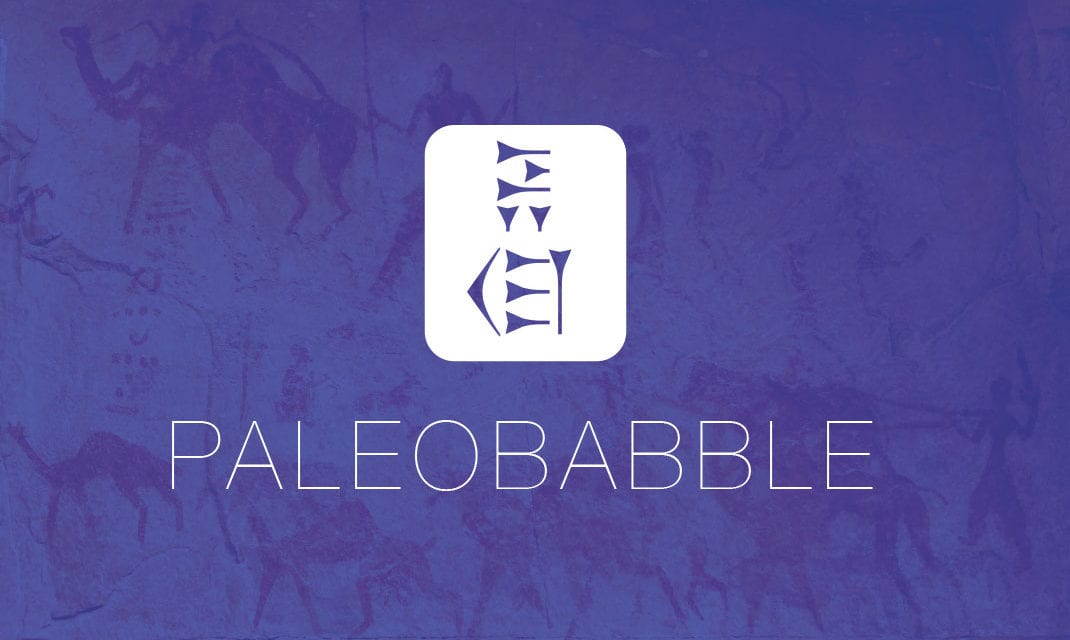Thanks to Mark Goodacre’s NT blog for this notice. Thomas Verenna’s article entitled, “Artifacts and the Media: Lead Codices and the Public Portrayal of History.”
Lead Codices and the Media: New Article


Thanks to Mark Goodacre’s NT blog for this notice. Thomas Verenna’s article entitled, “Artifacts and the Media: Lead Codices and the Public Portrayal of History.”
HAH! Great article. It is really very disappointing to realize who gullible the public at large is. You would think that with the advance of the internet people would be able to access better quality facts easier right? But NOOOO, it is turning into a mass of ruminating goofs who spread feelings and assumptions as tried and true research! ARG!
I was just reading about Google’s crack down on sites like eHow to provide articles written by reliable authors rather than helpful idiots, which seem to abound on the net.
Regardless, it is still an easy thing to just do a bit of research to verify alleged “facts” presented by our News Entertainers at FOX, CNN, etc….
It is becoming plain that our once respected “news outlets” have quickly become emotional sensationalism to keep the public away from the facts AND that ‘BiblioBloggers’ like you Mr. Heiser are worth your weight in gold.
Thanks for keeping an eye out for the rest of us who care to know the “facts”,
R. B. G.
But the problem is the typical Internet user doesn’t know to ask questions, or which questions to ask, or how to be critical of claims. Some people would also rather hear what they want to hear, rather than scrutinize a claim just be certain. Other people simply don’t care if information is reliable or may not even be aware that reliability is an issue to begin with.
It also takes an element of expertise. I’m not a historian or Biblical scholar. What did I think of Simcha Jacobivici’s documentaries on the History Channel years ago? Looked “official” to me at first. Of course, not knowing the history of the region or the consensus of scholars on the history of the region puts me at a distinct disadvantage to documentaries like that … I wouldn’t even know what to ask or critique save for anything related to common knowledge.
If you’re an ignorant gullible user with no scholarly training, what do you have to go by? I saw it on Discovery/History/Science/CNN/Fox/etc, the site looked professional, it was on a .edu/.org/.com/.gov/etc site, etc… Must be true, right? It’s a difficult problem to deal with.
What particularly troubles me is the big gaping divide between the academic community and its complement. Years ago, I hadn’t even heard of an “academic journal.” People aren’t aware that the news (for example) isn’t actually authoritative or that there is such a thing as “peer review” to help prevent said goofs from making authoritative claims. At the same time, these journals are neither freely available (most of them) or comprehensible by a majority of the population. How does one even begin to merge these two?
@RBG and nslay,
One of the root problems, maybe THE root problem is that the american education system really doesn’t teach critical thinking and its necessary cohort, critical reading. On the contrary, the school system, by and large, teaches reliance upon experts to do your thinking for you. What the experts say must be accepted.
This problem is also present at the university level. In the vast majority of history classes the tests you take and the papers you write require no critical thinking and no original thought. In fact in many cases they essentially punish such things. What they require is the ability to parrot the ‘current scholarly thought’ on a given issue, with perhaps a modicum of explaining to show that you understand and have a good grasp of ‘the current scholarly thought’.
Now, this makes the average academic less gullible than the average joe sitting in front of his TV, only in so much as the average academic has a better brand of expert doing his thinking for him.
The availability of information really only breeds confusion for people who have been trained to rely upon experts. At that point the real determining factor for most people is simply which ‘experts’ they want to follow, which again is usually based on which experts appear to agree with them or wich experts say the things they like best.